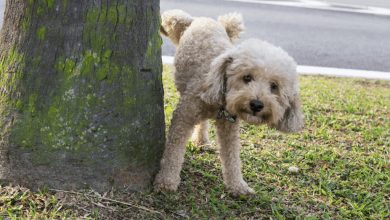A Chewy Conundrum: What to Do When Your Dog Eats Gum?

1. Introduction
Eating gum can be a dangerous thing for your dog. It’s not uncommon for dogs to get into things that they shouldn’t, and chewing gum is one of those things. In this article, we will discuss what happens if your dog eats gum and how you can prevent it from happening in the future.
2. What is Gum?
Gum is a type of candy that is made of sugar, flavoring, and various other ingredients such as waxes and gums. The most common type of gum is the sticky variety that we all know and love. It’s often flavored with mint or fruit flavors and comes in a variety of shapes and sizes.
3. Is Gum Toxic for Dogs?
The good news is that most types of gum are not toxic to dogs when consumed in small amounts. However, it can still cause digestive issues such as nausea, vomiting, diarrhea, and abdominal pain if ingested in large quantities over a short period of time. Additionally, some types of gum contain xylitol which can be very dangerous for dogs if consumed in large amounts as it can cause hypoglycemia (low blood sugar) or even liver failure in extreme cases.
4. Symptoms of Gum Poisoning in Dogs
If your dog has eaten a large amount of gum containing xylitol then the symptoms may include vomiting, lethargy, weakness, seizures or even coma depending on how much was ingested. Other symptoms may include increased thirst or urination due to the hypoglycemia caused by the xylitol consumption.
5. Diagnosing Gum Poisoning in Dogs
If you suspect that your dog has eaten a large amount of gum then you should take them to the vet immediately as they will be able to diagnose any potential poisoning or health issues related to the consumption of the gum more accurately than you could at home. The vet will likely take a blood sample to test for glucose levels as well as any other potential toxins that may have been consumed with the gum such as chocolate or caffeine which can also be toxic for dogs when ingested in large amounts over a short period of time.
6. Treatments for Gum Poisoning in Dogs
The treatments for gum poisoning depend on how much was consumed and what type it was (xylitol-containing vs non-xylitol). If your dog ate a large amount of xylitol-containing gum then they will likely need an IV drip with glucose to help stabilize their blood sugar levels as well as other supportive treatments such as anti-nausea medication and fluids depending on their symptoms. If your dog ate non-xylitol containing gums then they may just need supportive care such as fluids and anti-nausea medications depending on their symptoms but usually no further treatment is necessary beyond monitoring them closely at home until the effects wear off naturally over time.
7 How to Prevent Your Dog from Eating Gum
The best way to prevent your dog from eating gum is to keep it out of reach at all times – this means keeping it off tables or counters where your pup can easily access it and making sure any trash cans containing old pieces are securely lidded so they cannot get into them either.Additionally,make sure you don’t leave pieces lying around where your pup might find them – this includes pockets,purses,backpacks,etc.Finally,always supervise your pup when out on walks so you can keep an eye out for discarded pieces that they may try to pick up along the way.
8 Conclusion
>
In conclusion,eating gum can be dangerous for dogs if consumed in large amounts over a short period time – especially if it contains xylitol which can cause severe health issues including liver failure.The best way to prevent this from happening is by keeping all pieces out of reach at all times and supervising your pup while out on walks so you can spot any discarded pieces before they have a chance to pick them up.With these simple steps you should be able to keep your pup safe from any potential harm caused by consuming too much chewing gum!
9 Sources & Further Reading
• ASPCA Animal Poison Control Center: Xylitol Toxicity In Dogs https://www.aspcaapcc/petcare/poison-control/xylitol-toxicity-in-dogs/
• PetMD: What Happens If My Dog Eats Chewing Gum? https://www.petmd/dog/emergency/accidents-injuries/e_dg_chewing_gum_poisoning
• VCA Animal Hospital: Xylitol Toxicity In Pets https://vcahospitals/know-your-pet/xylitol-toxicity-in-pets



